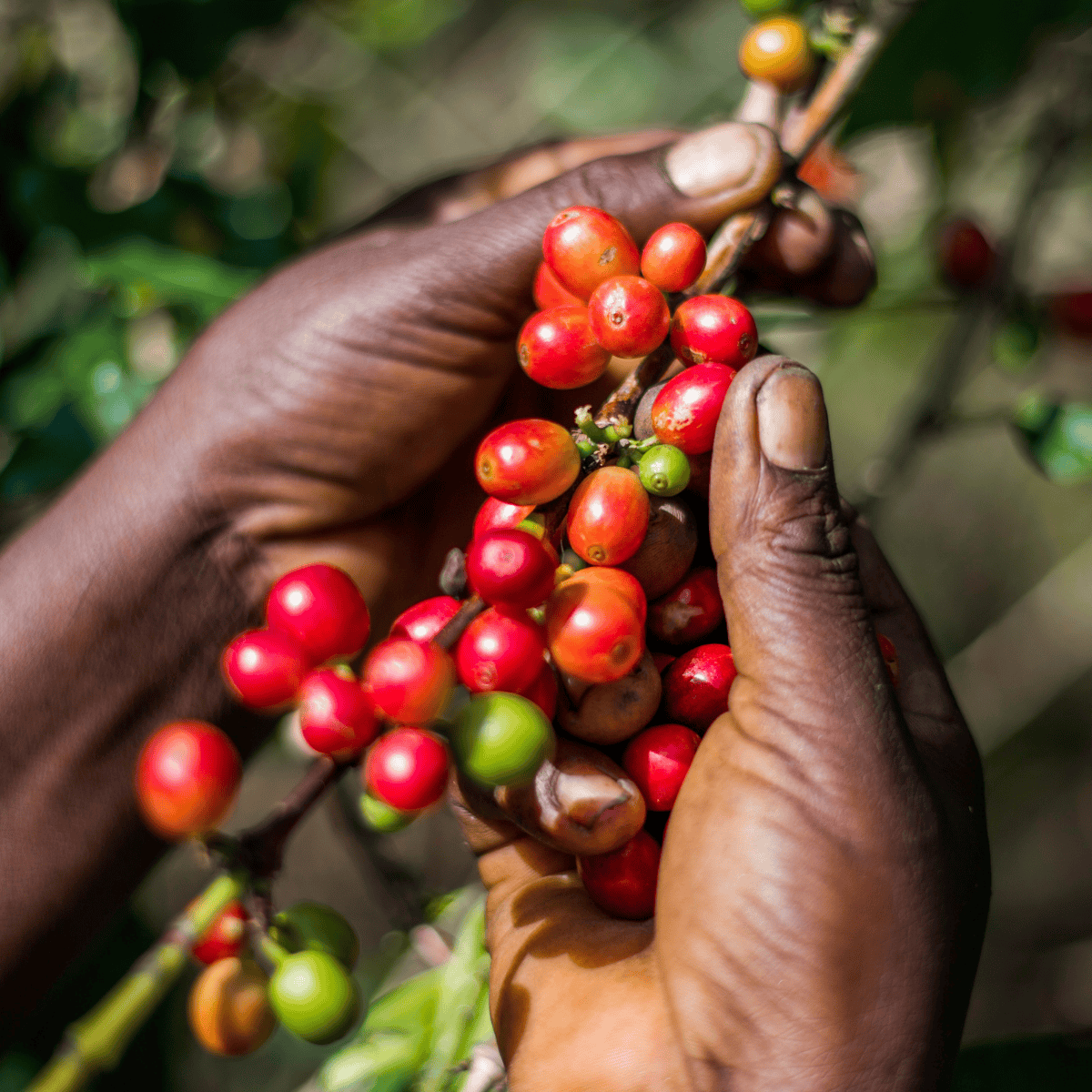Customer Portal

Arabica Coffee Flavour
by Jack Foster November 20, 2024 5 min read
Did you know that Arabica coffee accounts for roughly 65% of global coffee production? Arabica coffee is one of the oldest coffee species, proving to be a popular choice for many coffee drinkers. To learn more about the rich coffee flavour that Arabica beans produce, continue reading.
What is Arabica Coffee?
What exactly is Arabica coffee? Well-known in the coffee world, Arabica coffee is one of the most popular coffee types, native to Ethiopia.
The History of Arabica Coffee
Arabica coffee is the oldest and most cultivated coffee species, originating in the highlands of Ethiopia. It was first consumed as a brewed beverage in Ethiopia and later introduced to Yemen, where it became a vital part of Islamic culture.
By the 15th century, coffee cultivation had spread across the Arabian Peninsula. From there, Arabica coffee expanded globally through European colonisation, with Dutch traders introducing it to Indonesia in the 17th century.
Today, Arabica coffee is grown in over 70 countries, with Brazil, Colombia, and Ethiopia among the leading producers. Despite its popularity, Arabica is labour-intensive to grow and more vulnerable to environmental factors, making its cultivation both challenging and rewarding.
How Is Arabica Coffee Grown?
Arabica coffee thrives in high-altitude regions between 600–2000 meters (2000–6500 feet) with moderate temperatures (15°C–24°C or 59°F–75°F), consistent rainfall, and rich, well-draining soil.
It requires careful attention, as the plants are delicate and susceptible to pests and diseases. Arabica trees are typically pruned to around 2–3 meters for ease of harvest, and the cherries take about 7–9 months to mature. Farmers often grow Arabica under shade to protect the plants and enhance soil health.
What Can Affect the Taste of Arabica Coffee?
The taste of Arabica coffee is influenced by a combination of natural factors and human intervention. Soil, altitude, climate, and farming methods play a significant role while roasting and brewing techniques further shape its final flavour.
The composition of the soil where Arabica coffee is grown significantly impacts its taste. Nutrient-rich, volcanic soils often produce coffee with vibrant and complex profiles, offering fruity, floral, or nutty notes.
Minerals and organic matter in the soil influence the growth of the coffee plant and the development of its beans, affecting the sweetness, acidity, and overall balance of the coffee. Arabica coffee is typically grown at high altitudes (600–2000 meters or 2000–6500 feet).
Higher elevations result in cooler temperatures, which slow the growth of coffee cherries. This slow maturation process allows the beans to develop denser structures and more concentrated flavours, resulting in bright acidity, sweetness, and nuanced notes like citrus or berries. Lower-altitude coffees tend to have simpler, earthier flavours.
The farming practices and care given to Arabica plants also affect their taste. Organic farming or shade-growing methods can produce coffee with richer, more balanced flavours. Conversely, poor farming practices or over-fertilisation may negatively affect the quality of the beans, leading to off-flavours or uneven taste.
Roasting transforms green coffee beans into the aromatic and flavourful beans we brew. The degree of roasting (light, medium, or dark) influences the taste profile:
- Light roasts preserve the bean's natural flavours, highlighting its acidity and fruity or floral notes.
- Medium roasts balance acidity and sweetness, often enhancing caramel or chocolate flavours.
- Dark roasts create a bolder, smokier taste but may overshadow the bean's original flavours.
How Arabica coffee is brewed determines how its flavours are extracted. Different brewing techniques, such as pour-over, espresso, or immersion, emphasise various aspects of the coffee’s taste:
- Pour-over accentuates clarity and brightness, showcasing the coffee's acidity and delicate flavours.
- Espresso produces a concentrated shot, highlighting sweetness and body.
- French press results in a fuller-bodied coffee, enhancing earthy or nutty notes.
The interplay between natural conditions, cultivation practices, and preparation methods creates the diverse and dynamic flavour profiles that Arabica coffee is known for. Whether fruity, floral, chocolatey, or nutty, every cup reflects its unique journey from farm to cup.
Brewing Tips
Grind: Medium Fine
Dose: 15g (3 tbsp)
Final Cup: 200ml
Boil your kettle. Ideally to 94ºC, but if you don't have a temperature kettle just let it boil and then sit for a few minutes. This temperature allows for better extraction.
Here’s a step-by-step on how to brew Arabica coffee:
- Place an inverted AeroPress on your scales and tare them.
- Grind your coffee and decant 15g into the chamber.
- Tare your scales.
- Pour 50ml of boiled water into the chamber, saturating the coffee.
- Turn on the timer.
- Stir the coffee anti-clockwise 5 times, then clockwise 5 times.
- Leave until the timer reads 1 minute.
- Pour 150ml of boiled water into the chamber.
- Stir the coffee anti-clockwise 5 times, then clockwise 5 times.
- Put 2 AeroPress filter papers into the cap and wet them, removing the papery taste and ensuring the papers stick to the cap.
- Place a cap on the chamber.
- Place the cup of your choice on the chamber, and whilst holding both the cup and the AeroPress, carefully flip them over.
- At around 2 mins 20, press the plunger steadily through to the hiss.
- Remove the AeroPress.
- Stir the coffee.
- Serve when the timer reads 5 mins. Drink the beautiful brew!
What Are the Health Benefits of Arabica Coffee?
Arabica coffee, prized for its refined flavour and quality, also offers several health benefits when consumed in moderation. These benefits stem from its rich content of antioxidants, vitamins, and other bioactive compounds. Let’s find out more about the overall health benefits that Arabica coffee can offer.
Rich in Antioxidants: Coffee is one of the richest sources of antioxidants in the diet. Studies at the National Institutes of Health (NIH) on antioxidants in coffee have identified chlorogenic acid, found abundantly in Arabica coffee, as a potent antioxidant that reduces oxidative stress and inflammation.
Supports Brain Health: Research from the Harvard Medical School review on caffeine and brain health suggests that caffeine enhances cognitive function by blocking adenosine receptors, which promotes alertness and focus. Additionally, long-term coffee consumption has been associated with a reduced risk of Alzheimer's and Parkinson's diseases.
Boosts Physical Performance: A meta-analysis published in Sports Medicine confirmed that caffeine improves athletic performance by increasing endurance, strength, and power output. It mobilises fatty acids from fat tissues, which the body uses for energy.
Aids in Weight Management: Studies from the American Journal of Clinical Nutrition suggest that caffeine can increase metabolism by 3–11%, promoting fat oxidation. Chlorogenic acid may also help lower glucose absorption, potentially aiding in weight regulation.
Promotes Heart Health: Moderate coffee consumption (3–5 cups per day) has been linked to a reduced risk of cardiovascular disease. A study in Circulation found that habitual coffee consumption was associated with a lower risk of coronary heart disease and stroke.
Improves Mood and Reduces Depression Risk: A study published in JAMA Internal Medicine found that coffee drinkers had a lower risk of depression. The release of dopamine and serotonin, triggered by caffeine, contributes to mood improvement.
Supports Liver Health: Research from the World Journal of Hepatology shows that coffee drinkers are at a lower risk of liver diseases, including cirrhosis and liver cancer. The compounds in coffee, such as kahweol and cafestol, can potentially have protective effects on liver cells.
Enhances Digestive Health: Coffee stimulates the production of stomach acid and bile, aiding digestion. It also promotes bowel movements by stimulating the muscles of the colon, according to studies on gut motility.
These health benefits are supported by a growing body of research. However, it’s vital to consume coffee in moderation, as excessive intake can negate some of its positive effects. Individual factors, such as tolerance to caffeine, overall diet, and health conditions, can also influence how coffee impacts a person.
Arabica Coffee at Crosby Coffee
If you’re interested in trying great-quality Arabica coffee, you’ll be pleased to know that we can help! At Crosby Coffee, we have a wide variety of Arabica coffee available. Our coffee is favoured by many—and there’s a reason it’s proven to be so popular. Shop our coffee today, or if you have any questions, feel free to contact us. We’ll be happy to answer any questions.
Leave a comment
Comments will be approved before showing up.
Also in Updates
Hey there! Fancy 10% Off?
Sign up to our newsletter and we'll send you all our latest offers, including 10% off your first coffee order!















